During the final years of the 20th century, SYSTEMatic Recordings began documenting several mercurial strands of IDM (intelligent dance music), ambient dub, and electronic listening music on the margins of Auckland’s counterculture music scene. Between 1998 and 2002, they released a series of cult compilations, live recordings, and studio albums as limited-edition CD runs, all adorned with minimalist graphic design sensibilities, before fading from view.
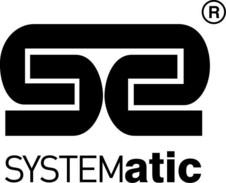
Thirteen years later, SYSTEMatic’s founder, the electronic music-instrument enthusiast, audio engineer and photographer Ben Harris, uploaded the label’s discography on Bandcamp after releasing Konets, his fourth and final album under the System alias.
By the time he launched SYSTEMatic, Ben Harris had been living in Auckland since the early 90s. Originally from Christchurch, he moved north to study audio engineering at the SAE Institute before working as a freelance field audio engineer and presentation switcher for film and television. Alongside audiovisual work, Harris spent several years running the now-defunct Brazil coffee shop on Karangahape Road with the musician brothers Dominic and Simon Taylor (of the Deepgrooves hip-hop group Colony) and Peter Heerdegen.
In his spare time, Harris created imaginative electronic music using a combination of drum machines, synthesisers, peripheral hardware, and software. Outside of his home studio, he could be found performing under the Zone and System aliases or playing in the 10-piece instrumental dub band Repeater with the Taylor brothers, drummer Kuru Apirana, and a rotating roster of musician friends. “Kuru said, ‘Bring your Roland TB-303 (bass synthesiser) down and I’ll drum along with you,’” he remembers. “The idea was a dub collective, kinda like an Adrian Sherwood thing.”
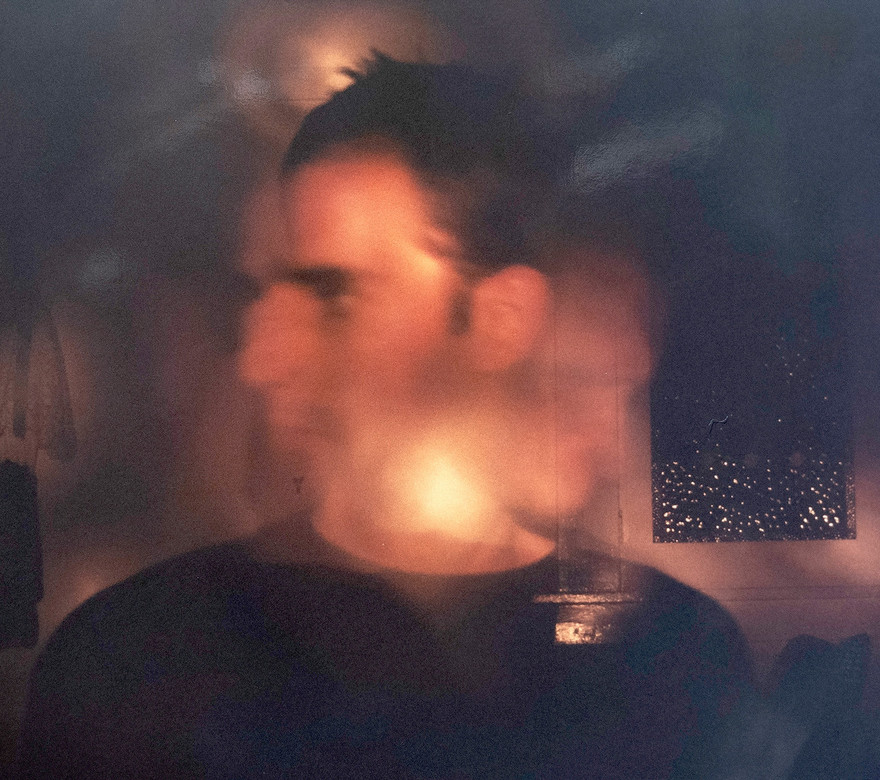
Ben Harris AKA System
After finishing up at Brazil, Harris spent a stint composing soundtrack music for film and television with the late avant-garde New Zealand multi-instrumentalist Neill Duncan (Braille Collective, Primitive Art Group, Six Volts). He also handled drum programming, synthesisers and production for Duncan’s cult solo album Quiver (1999). Having grown up listening to jazz, post-punk and experimental rock, as well as Gary Numan, Jean-Michel Jarre, and Cabaret Voltaire’s more electronic efforts, Harris found it easy to find common ground with Duncan.
“We listened to a lot of Sun Ra and Eric Dolphy,” he said. “I ended up mixing the album in Wellington at Plan 9 Studios. While I was there, [the Scottish electronic music duo] Boards of Canada released their debut album, Music Has the Right to Children. I bought a copy from Allan’s Compact Discs down Lambton Quay. I thought, ‘This is a nice shop.’” Fittingly, alongside Soulsonic and Gary Steel’s Beautiful Music in Auckland, and Galaxy Records in Christchurch, Allan’s Compact Discs became a key sales outlet for SYSTEMatic.
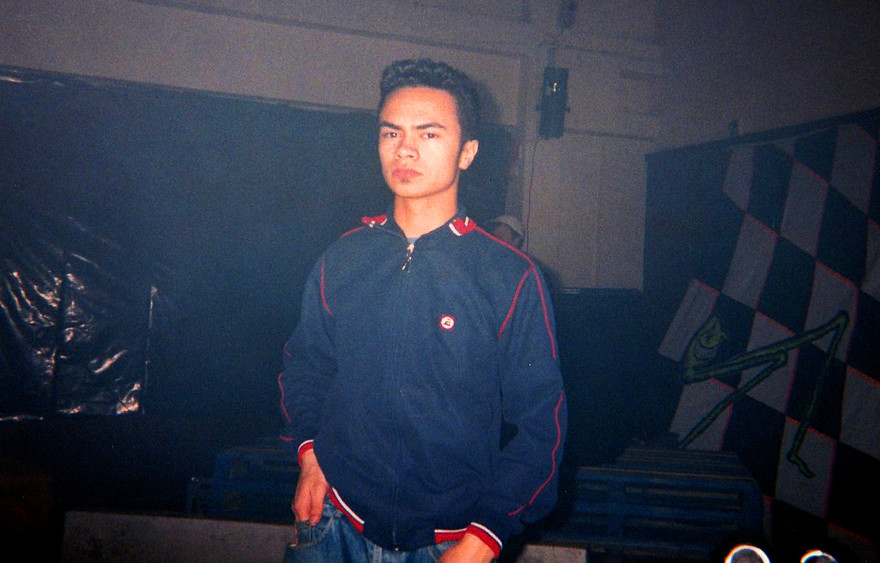
Denver McCarthy
By the late 1990s, Harris was embedded in a small community of like-minded electronica producers, including his former flatmate Denver McCarthy, better known as Mechanism and Micronism, and Bernie Eller, aka Area51. “Bernie worked at the Rockshop and helped us borrow synthesisers,” Harris says. He also got along well with Joost Langeveld, who was on the verge of founding the New Zealand house music label Reliable Recordings. However, his closest friends were two brothers from Hamilton, Greg and Jeff Wood, who recorded and performed live as Unit 23. “They were New Zealand’s version of Orbital,” he continues. “We thought they would be huge.”
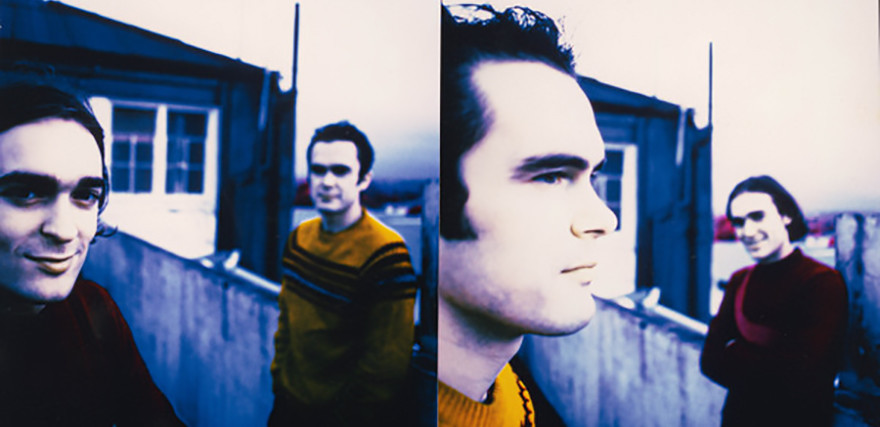
Jeff and Greg Wood, Unit 23.
Chris Chetland, one of the key founding figures behind Kog Transmissions, agrees with Harris. For his generation, Unit 23 was the blueprint. “Unit 23 were, to my mind, the band that really were really important in the mid/late 90s for helping drive and define the local dance music sound,” he says. “They had an impressive array of synths and music that totally suited the vibe of the warehouse parties that they played.”
Chetland also notes the crucial influence Harris had at the time. “Ben [Harris] always seemed really focused, considered and had probably one of the best technical and aesthetic understandings of anyone in the scene,” Chetland continues. “Refined is probably the best overarching term for Ben and SYSTEMatic that comes to mind.”
In 1994, a track Harris wrote as Zone was featured on Harmonic 695, a compilation of New Zealand techno and electronica released through Pulse Records. Two years later, two of his System 100 tracks appeared on Unknown Quantity, a compilation released by the UK label Helix Records.
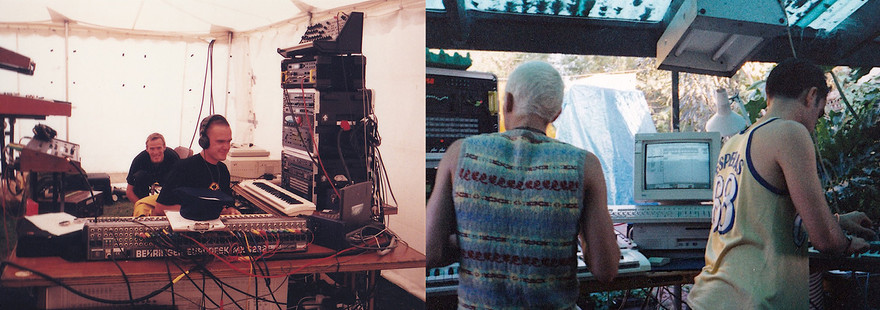
Unit 23
During those years, Harris went through several failed attempts to sign bigger deals with overseas record labels, before thinking, “Oh well, I’ll just put it out myself.” He was also aware that his friends had interesting material stashed away that might not be suitable for release through more dancefloor-oriented electronic labels of the era, such as Kog Transmissions. “Greg Wood told me I was very systematic about everything,” he says, explaining the origins of the label name.
In 1998, Harris unveiled SYSTEMatic’s debut release, a compilation that borrowed its name, Funk Technic, from a mid-to-late 20th-century German technical magazine for radio, television, and electronics, Funk-Technik. “In English, it translates into radio technology,” he explains. “So it was a play on words. It was also about showing Auckland there was more out there than we were hearing in the nightclubs and on the radio.”
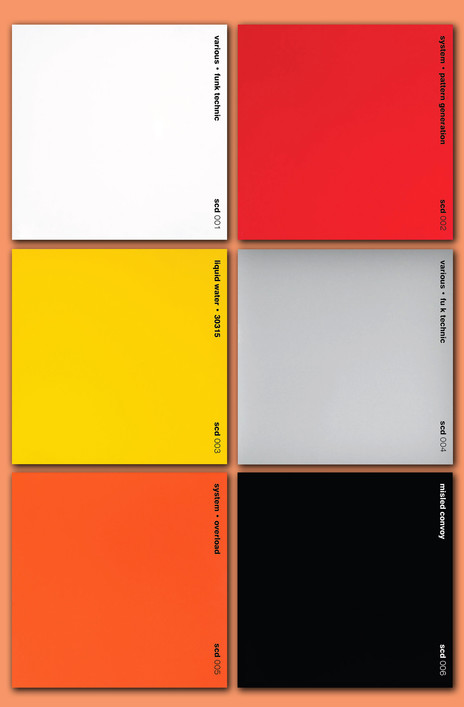
SYSTEMatic Recordings albums 1-6. Top row, L-R: System - Funk Technic (1998), System - Pattern Generation (1998). Middle row, L-R: Liquid Water - 30315 (1999), System - Fu k Technic (1999). Bottom row, L-R: System - Overload (1999), Misled Convoy (1999)
Harris personally contributed three tracks to Funk Technic: ‘Slabwobble’ and ‘This Is What You’ve Done’, and ‘Light Of Day’, released respectively under his System and Nebulus aliases. System (originally System 100, named after the Roland System 100) allowed him to explore a sleek, well-produced listening electronica sound. The Nebulus material, on the other hand, was more akin to live recordings played on drum machines and synthesisers, he says. “It was, in its own sense, more nebulous.” The compilation also included tracks from Unit 23, Greg Wood from Unit 23’s solo project Strüth, two different Joost Langeveld aliases, The Wrigger and Mr Reliable, and an architect named Anthony Walton who made music as M8.
Back in the years leading up to SYSTEMatic, Harris remembers Andrew Paykel, who co-founded the Ponsonby cafe Dizengoff with Paul Ryan, coming to Brazil for a chat. Paykel admired Brazil’s stripped-back, industrial look. “He asked if we’d mind if he opened a complementary club called Herzog,” Harris explains. “It was this concrete bunker, and his plan was to put some speakers in, but leave the fit-out rough.” They gave him their blessing. Soon enough, musicians from Harris’s world were performing at Herzog. “Greg Wood ran a series of monthly gigs there called Technicolour,” he continues. “Each flyer was a different colour. One time, Jed Town (Fetus Productions, ICU, Jedeye) played.”
SYSTEMatic’s second release was the first of four System albums, Pattern Generation. Across 11 tracks, Harris mixed spacey, sci-fi textures and melodies with glistening synthesiser pads, robust machine beats and squelchy basslines, capturing the feeling of the race towards the future. “I remember [multidisciplinary artist and DJ] Jamie Larnach describing my music as hoptronix,” Harris says. “He saw it as hip-hop electronica listening music.”
For the label’s third release, Harris revisited a set of recordings he’d made with Denver McCarthy when they were flatting together in 1995. Ostensibly, 30315 by Liquid Water was a sprawling suite of ambient electronics and drone pieces, but for Harris, it was avant-garde jazz. “That album is just straight up [Eric] Dolphy,” he says. Everything on it is live. There are no computers or sequencing.”
“One of my fondest memories of Auckland is living with Ben [Harris] in this tiny flat in Grafton,” remembers Denver McCarthy. “I had gear set up in my room. He had a bedroom studio, and he was very knowledgeable about synthesisers. It was an amazing period for me. When we made that recording, we used his gear. I was just along for the ride to twiddle some knobs.”
30315 was followed by Harris’s second System album Overload (1999) and the label’s second compilation album, Fu k Technic (1999). Fu k Technic featured Strüth, M8, System, Nebulus and The Wrigger (now Wrigger), but it also introduced two new acts to the SYSTEMatic world, Cool Capture and Dooblong Tongdra.
“Cool Capture was a random guy I met,” Harris recalls. “I went around to his tiny flat, where he had a studio with hardly any gear, and he played me this brilliant track. I don’t know if he ever released anything else.” Dooblong Tongdra, on the other hand, released two CDs of fierce and innovative IDM and prog electronica, Anything Anywhere For No Reason At All (1999) and Discontinued (2001), through the Why Bother? label. They also appeared on Round Trip Mars’ Sideways compilation (2001).
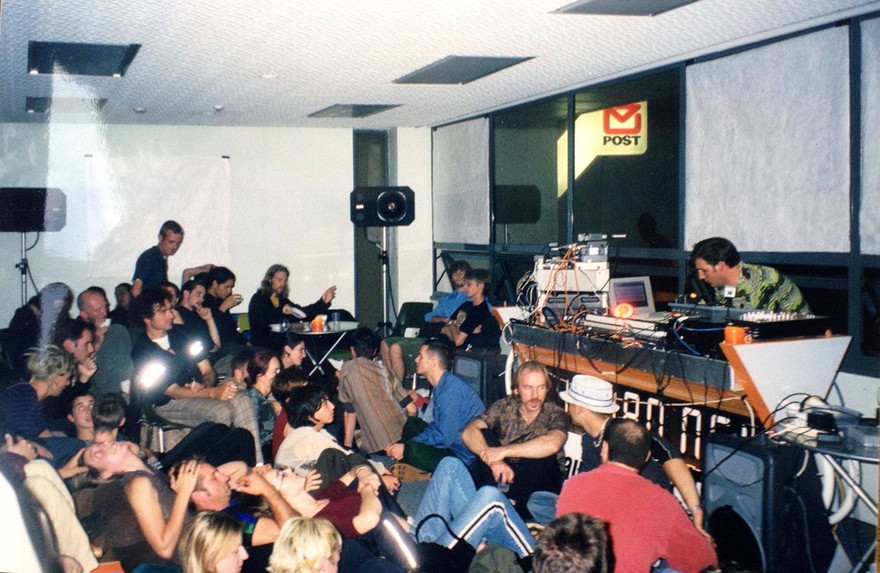
Misled Convoy at Beautiful Music
SYSTEMatic’s sixth release was a live recording of the multimedia artist and musician Michael Hodgson (one half of Pitch Black) performing under his Misled Convoy alias at Beautiful Music in 1999. Splitting the difference between his work in the 1980s Christchurch ambient noise ensemble Tinnitus and the digital dub affectations of Pitch Black, Misled Convoy allowed Hodgson to recast his love of atmospheric soundscapes in a different light. Across Misled Convoy’s 15 tracks, he displayed a deft command of mood, tone and texture.
“My set was a real-time surround show played to a horizontal audience,” Hodgson remembers. “I set up the sounds and conditions of the compositions and performed the whole show as a dub mix using effects and a mixing desk.” At the end of the performance, he slowly faded out his reverb and delays until the only thing left was the sound of Karangahape Road coming through the windows. “I wandered off the performance area and eventually, the crowd slowly came to and left,” he continues. “There was no actual performance end, just ambient silence.”
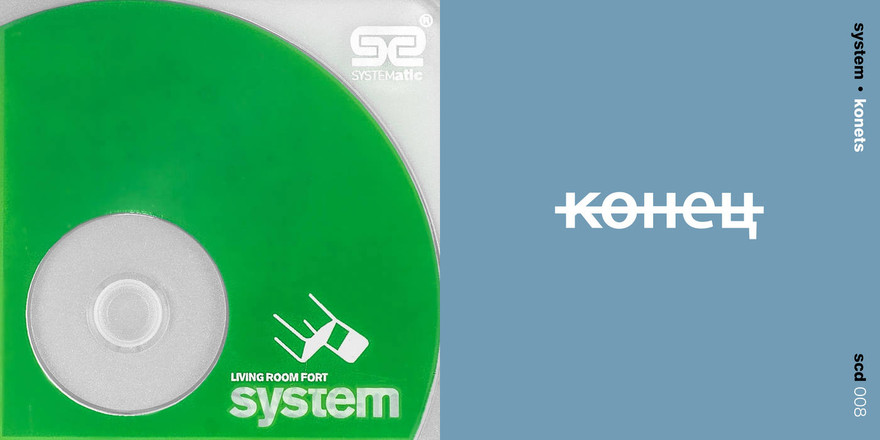
Sysytem - Living Room Fort (2002) and Konets (2015)
In 2000, Harris’s Liquid Water track ‘Quadrant Pt 2’ featured on Leading A Horse To Water: Gathering Ambience, a CD compilation album released by Monkey Records. From there, things petered out for SYSTEMatic until 2002, when, in the wake of a world trip, he released his third System album, Living Room Fort. In a break from the repeating visual language of the previous SYSTEMatic releases, Living Room Fort’s cover art and packaging were handled by Jeff Wood (of Unit 23), who had established himself as an art director and brand designer.
Harris wrote, recorded, and produced Living Room Fort in six different countries over the course of 12 months. “I had a really cool little portable sequencer machine,” he says, while reflecting on writing tracks on train rides through Europe and making field recordings in New York and Boston.
During the intervening years, Harris continued to scrape together a living working as an audio engineer, producer and composer. He also built recording studios and took on soundtrack jobs. Eventually, his reputation landed him a position with TVNZ, assembling the broadcast studio for the 2000 America’s Cup Final in Auckland. “I don’t know if I really liked making music for other people,” he admits.
After 2002, Harris moved into the visual editing side of broadcast television work. For a spell, music took a backseat role in his life. “When I was making music as System, I wasn’t making much money, but at the end of the week, if I could buy a pie on the weekend, I would be happy,” he says. “Then, all of a sudden, I had a proper job and could buy two pies. After that, making small sums of money on releases wasn’t that exciting.”
It wasn’t just that, though: the scene was changing in Auckland as well. Friends were moving away, the public’s musical tastes were shifting, and an era was coming to a close. “The internet was kicking in and the music had lost its shine a bit, “ he continues. “I think to keep going, I would have had to do something a bit slicker, but I didn’t have it in me to ramp it up. I was painfully shy as well.”
Over the following years, Harris got married before moving to the Netherlands with his wife in 2010. There, he stepped away from technical audio work, reinvented himself as a photographer and started playing around with music again. Half a decade later, he rebooted SYSTEMatic to release Konets, the fourth and final album from his System alias. Due to the shifting nature of the music industry, Harris opted to release it digitally through Bandcamp, where he also uploaded the rest of the label’s discography.
“For Konets, I created an obscure little website with an abstract logo floating on it,” Harris remembers. If you clicked around, random things would happen, then after two minutes it took you to Bandcamp.” While we discuss the SYSTEMatic catalogue, he also notes that he’s sitting on an unreleased second Liquid Water album, which he describes as “more breaks-oriented and very abstract,” and half of a third compilation album. “The working title was Fun Nektie,” he says. “You can see, I guess, the whimsical degradation of the Funk Technik name through the years. We certainly didn’t take ourselves too seriously.”
On reflection, Harris realises that he essentially just made music for himself. “The whole reason I did it was because there were things I could imagine, but couldn’t find out there,” he says, noting that his core motivation was the idea of not sounding like anyone else. Once the label had built up a catalogue, the urge subsided. “I was happy and felt less of a need to make music,” he says.
Lately, however, things have changed. “I’ve been writing stuff again recently,” says Harris. “My wife bought me a new drum machine. We’ve got similar tastes, but she’s way cooler than me. When we lived in Auckland, she’d have abstract German musicians play at a warehouse she was involved in. Maybe I’ll find a way to do some more music.”
--
Link: SYSTEMatic Recordings at Bandcamp
--